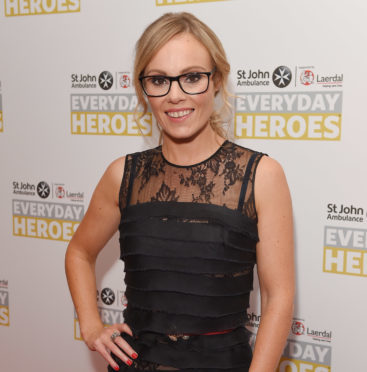Michelle Dewberry is a broadcaster and businesswoman who shot to fame as the 2006 winner of BBC show The Apprentice
It’s no secret that technology is evolving rapidly.
As recently as the past few months we have seen an explosion in new technologies, with huge leaps forward in areas like Blockchain and artificial intelligence.
One of the lessons bestowed upon us by the success of the tech sector is that fast-paced innovation is key to success, as is constant iteration.
Those companies who stand still will die – we all remember the examples of Blockbuster and Kodak, while more recently we’ve seen the demise of Toys R Us.
I firmly believe these companies’ failure to respond to technology changes contributed to their deaths.
If we know that evolution is key to areas such as business, why then, have we not looked at innovating the way we educate our children, to make sure they thrive in the ever-changing world?
Everything has changed so much in the past 50 years and yet we are educating our children in broadly the same way as we did five decades ago.
It has not adapted to the demands of the modern world – and in particular to the demands of employers, who need tech-savvy workers, more than anything.
Growing up in Hull, I remember being extremely frustrated at the way my education seemed to have very little practical use in the workplace.
A lot of what I learnt never needed to be used again and was promptly forgotten.
I know from talking to children today that many of them feel the same way as I did back then. And in a constantly moving world that is on the brink of being utterly transformed by advanced technologies, it seems ridiculous traditional education remains as dominant as it does.
There is room for traditional education, of course, and it is important that academia continues to thrive.
But there is a far greater need for technical education than many are acknowledging.
That is why the Baker Dearing Educational Trust has established 49 University Technical Colleges around England.
These schools work with industry experts and leading employers to design curriculums tailor-made for students looking for a high-quality education that is relevant to their future.
With industry partners including Jaguar Land Rover, Siemens, Rolls-Royce, Microsoft, the NHS and Bentley, students are exposed to a workplace environment and given skills that are paramount to their future success.
Perhaps even more importantly they are treated like adults, with the structure of the day mirroring that of major companies.
If we are not able to educate children in a way that allows them to make a significant contribution to the workforce as adults, then we are doing our next generation a disservice.
Children deserve to learn in a way that benefits their lives.
On a macro level, if we fail to give our young men and women the skills they need to become successful workers in the future, Britain’s economy will fall behind our already strong international competition.
Many countries have already made a sizeable commitment to technical education in order to effectively future-proof their economies, and we have ground to catch up.
It’s time to move away from a one-size-fits-all model and embrace the opportunities that technical education can offer our children.
This is not only a must if we are to unlock the potential of children disengaged with their studies, but it is also key if Britain is to take full advantage of the opportunities technological advancement has to offer.
